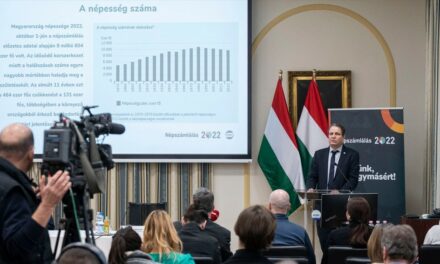The European Union has come to its senses: it is rapidly trying to strengthen the competitiveness of the common market in the face of, among other things, the spectacular rise of Chinese and American companies.
Discarding the practice of previous decades, the decision-makers are trying to navigate the continent's economy into a more favorable situation with subsidies that help efficiency, as well as protectionist and restrictive measures against countries outside the EU.
Hungary can be a beneficiary.
Index talked to EY experts Zsolt Kocsis and Filipp Puzder, who say that the EU has practically been given veto power to prevent the advance of companies that easily get support from abroad and use this to gain prominence in the EU.
In the past, the European Union strictly regulated state measures capable of influencing the market in order to ensure as free competition as possible for companies in its single internal market. This also includes state subsidies that member states can provide to market players under strict conditions, for specific purposes and often only with the approval of the European Commission, regardless of whether the support is paid from the member state's own budget or from EU subsidies.
At the same time, while the Union focused on regulating the internal market, companies outside the EU were in a situation where there are no such strict expectations. After all, it is much easier for an American or Chinese company to receive support in its own country than any of its European competitors. These foreign companies can easily access favorable financing sources in their home countries to start successful market expansions, be it dumping prices, investments or acquisitions.
In this way, the EU companies suddenly got competitors that can enter public procurements much more easily, can absorb companies with their financial strength, and thereby gain a significant market advantage.
Hungary was well placed
Hungary was among the first to introduce TCTF subsidies with a relatively high budget. Because the industries supporting the green transition are at the center of the investment promotion policy. Hungary may thus find itself in a very favorable situation. According to EY experts, it can be said:
in the latter period, Hungary used the special subsidies introduced in order to increase competitiveness very early and very effectively.
Both the due diligence framework for foreign investments and the decree on foreign subsidies that distort the internal market can have a positive effect on the operation of many Hungarian companies, whether they are multinational companies or just smaller companies that have a strong position in certain markets.
However, it is important to be aware that the regulation on foreign subsidies is value-neutral, i.e. the preliminary notifications do not take into account the purpose of an investor's arrival, only the fact that he is interested in a specific corporate merger or public procurement.
Since the EU practically has the right of veto for these cases, experts believe that it is very important to prepare in advance for such an investigation and to have properly prepared notification and authorization documentation. Otherwise, the investigations can be very long, which has a bad effect on the planned transactions.
The entire article can be read on the Index!
Featured image: MTI/Prime Minister's Press Office/Zoltán Fischer













